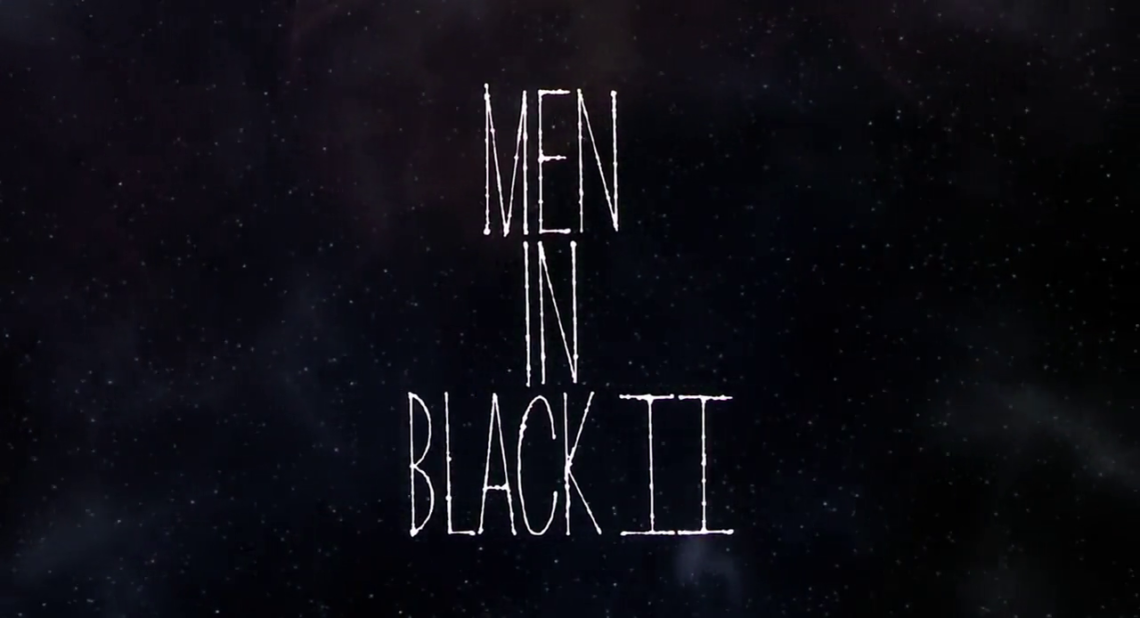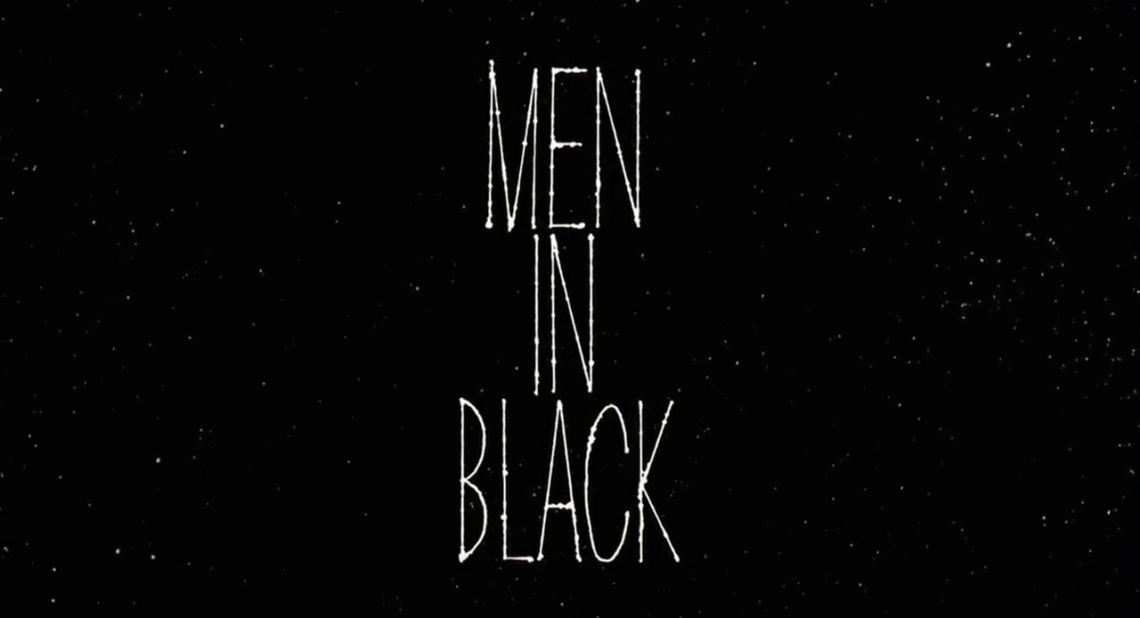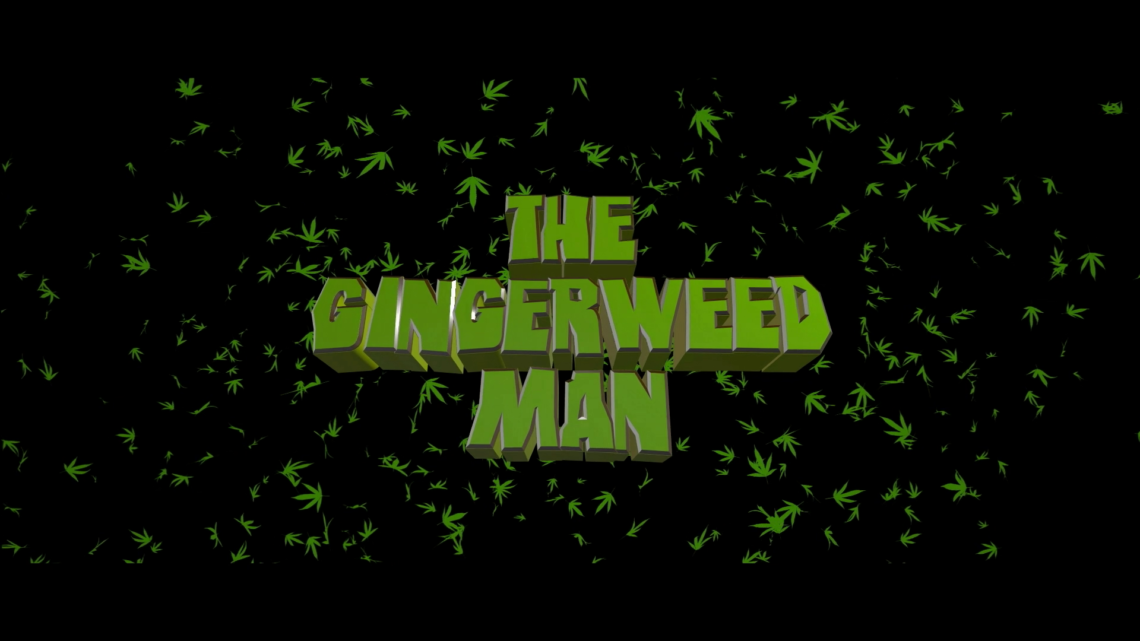-
#534 – Men in Black II (2002)
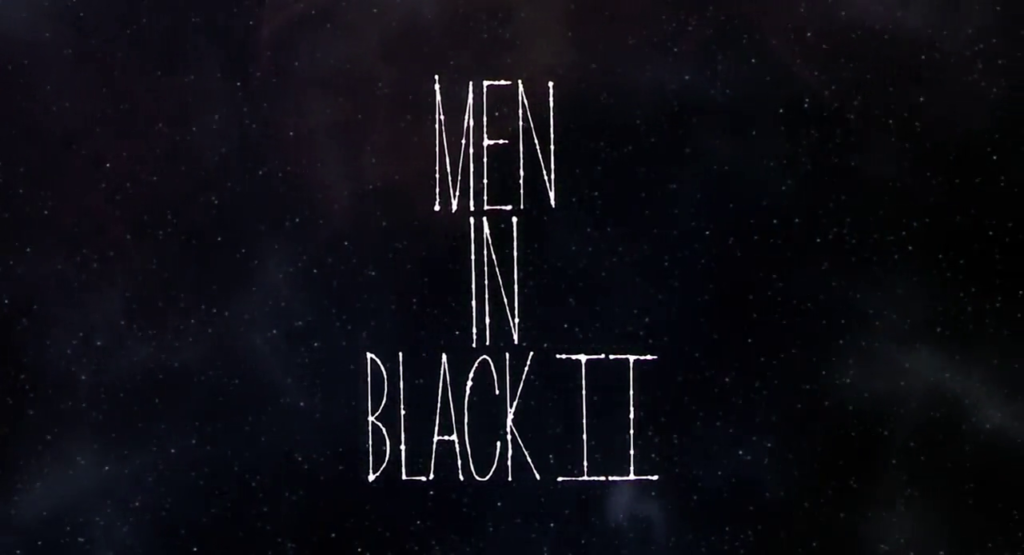
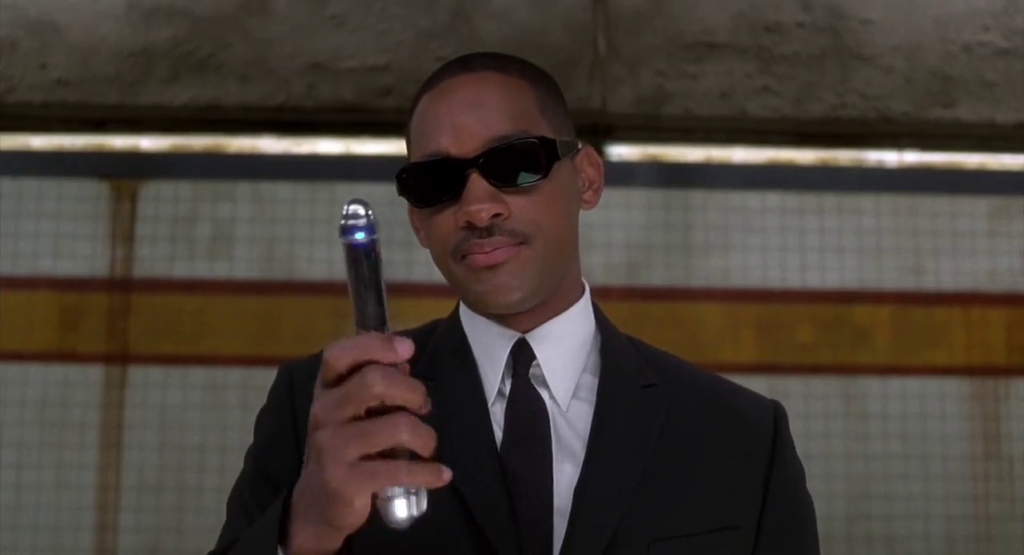
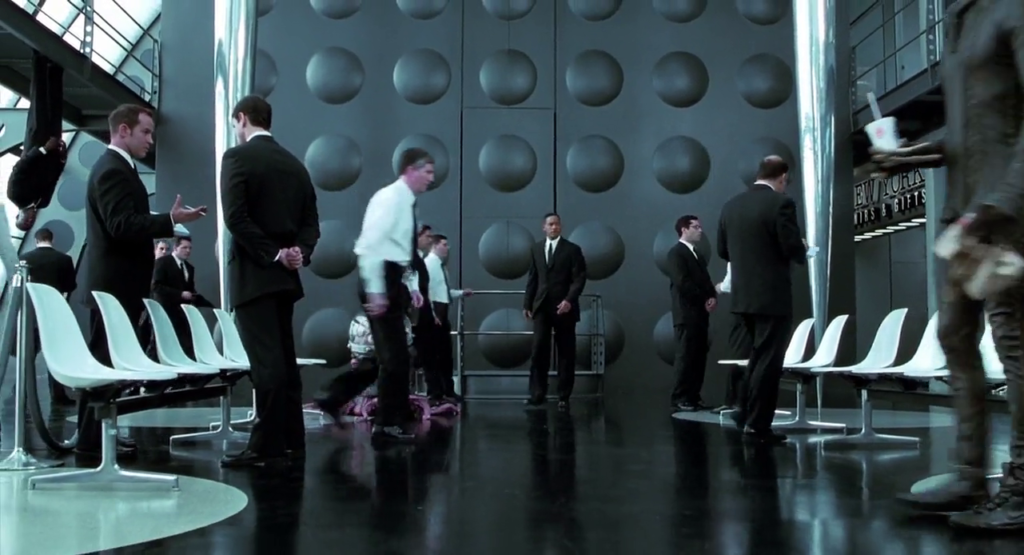
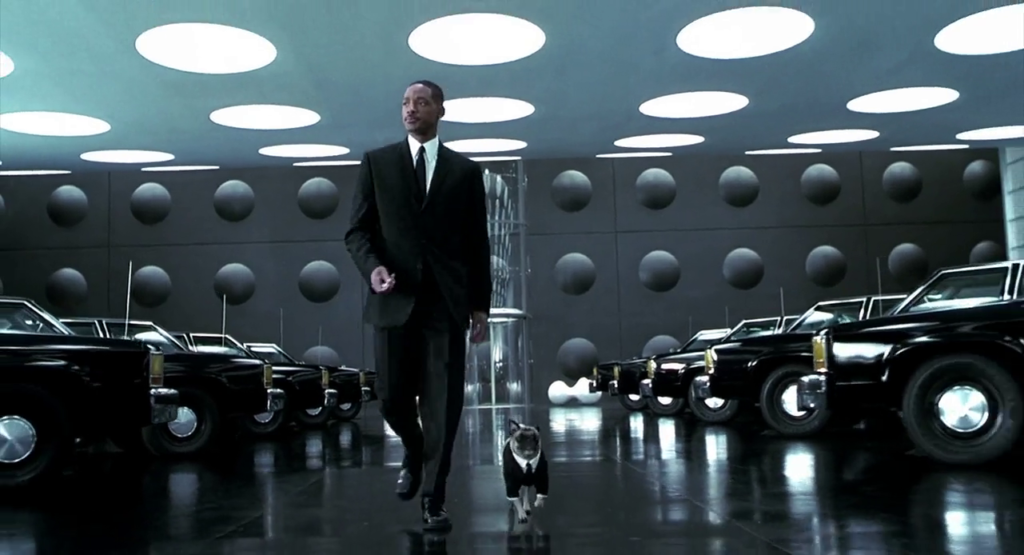
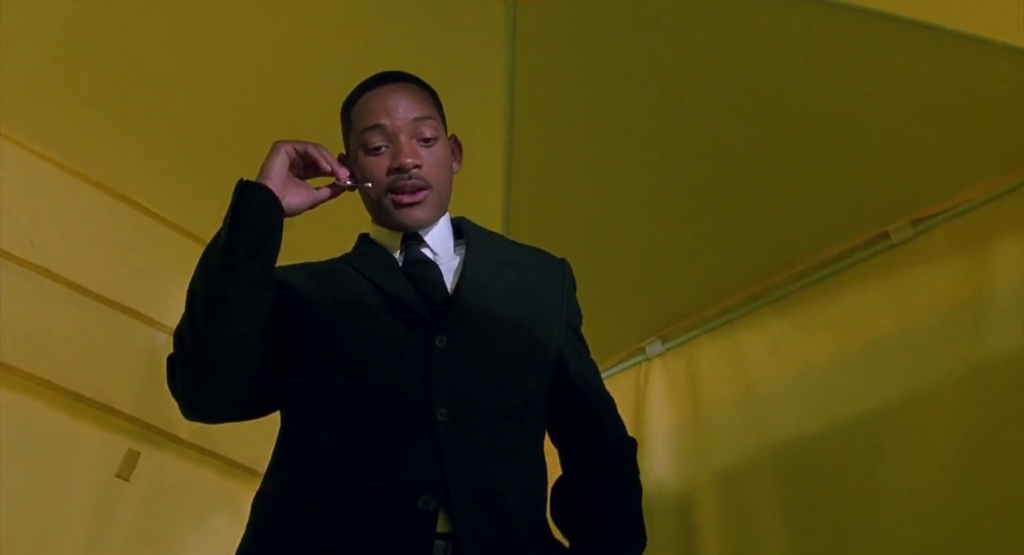
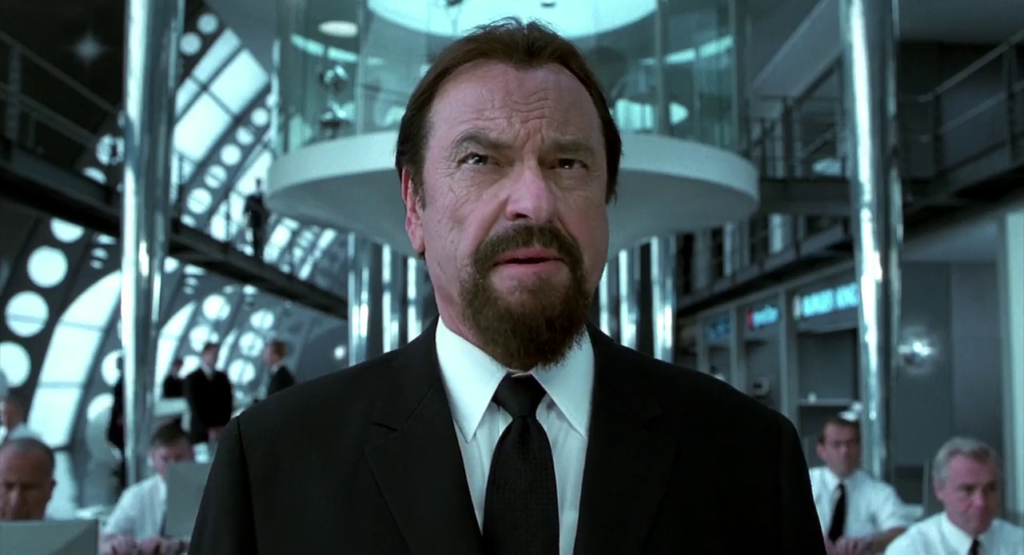
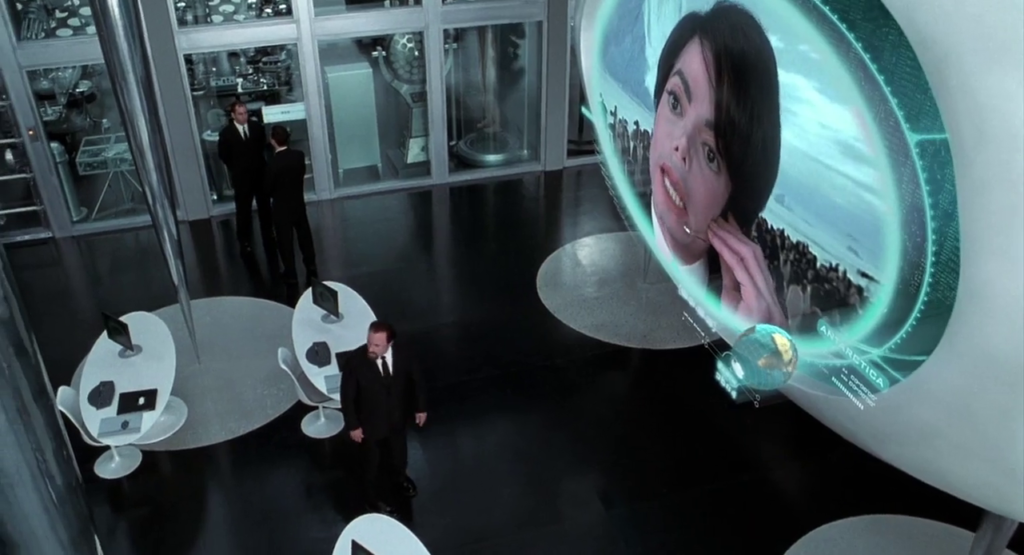
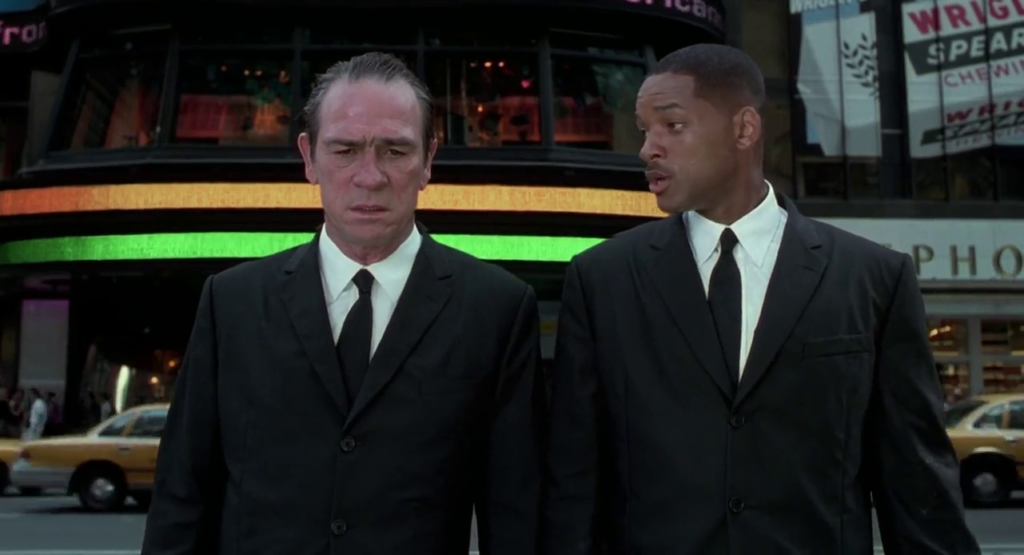
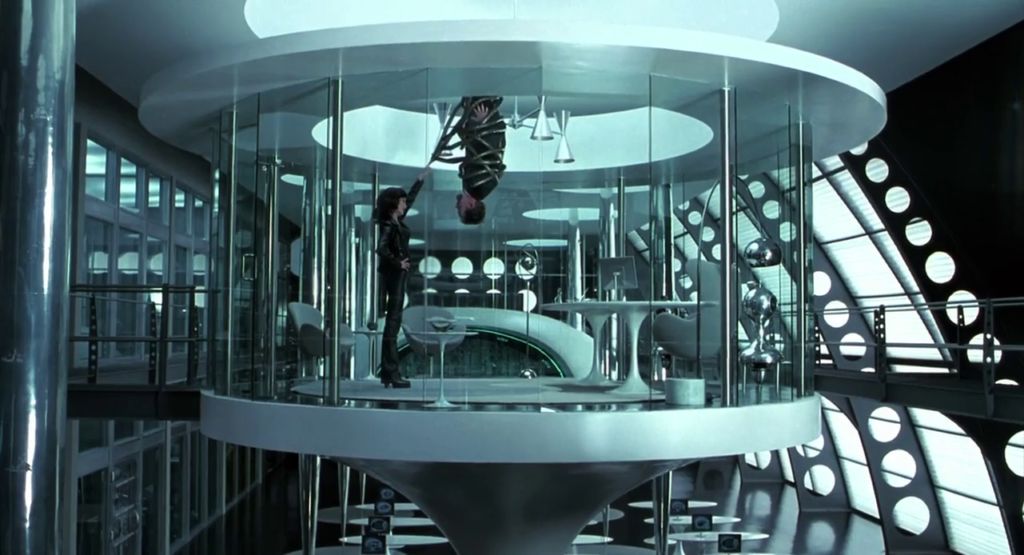
Men in Black II (2002)
Film review #534
Director: Barry Sonnenfeld
SYNOPSIS: Agent J is having trouble keeping an agency partner, as he feels like none of them are cut out for the job. When Serleena, an evil alien, comes to Earth looking for an artefact of immense power called the Light of Zartha, she will stop at nothing to acquire it. Unfortunately, the only person who knows where the light is hidden is Agent K, whose memories Agent J wiped five years ago when he neuralised him. Agent J goes to retrieve Agent K, somehow restore his memories, and hopefully save the world from an alien threat once again…
THOUGHTS/ANALYSIS: Men in Black II is a 2002 sci-fi film and the sequel to the 1997 film Men in Black. The film starts of with Agent J, who five years on from the events of the first film, has gone from a rookie to one of the top agents in the agency. He chases down Jeff, a monster worm who travels through the New York subway. J’s new partner T, seems to be not up to the job, and so J neuralises him and wipes his memory to lead a normal life. Agency leader Z laments J’s constant neuralising of his partners, including L, who became an agent at the end of the first film. Meanwhile, an alien named Serleena lands on Earth looking for the “Light of Zartha,” an energy source of immense power that was supposedly taken off Earth years ago, and she has been destroying planets across the universe looking for it. The only person that knows where it is is Agent K, who was neuralised himself, and so agent J must retrieve him and recover his memories before Serleena destroys everything.
The film’s structure and plot is very similar to the first time…a bit too similar. The film basically just role reverses the two main characters from the first film; with Agent J now being the veteran agent, and now Agent K without his memories is technically the rookie. You can see how this might be an interesting way to mix things up for the sequel and have the characters take on new roles, but it really is just a straight swap between them. Also, Will Smith doesn’t really work as the “straight” guy. Another problem with this is that when Agent K does get his memory back, the roles reverse again, and Agent J suddenly becomes the wisecracking rookie again, undoing all of his character development. This feels very much like a backwards step, although in some senses it is for the best, as the two can get into the roles that work properly for them. Going through all the trouble of getting K’s memories just to have them revert to the status quo is a pretty weak payoff though. The second element of the story concerning the “Light of Zartha” is again just a retread of the first film, in that the agents must find a small artifact that is actually a massive power source. There’s really nothing new that the film offers here.
Will Smith and Tommy Lee Jones are still appealing and entertaining in their roles, and still have great chemistry. The whole role reversal element doesn’t really do anything for their characters though. Frank the Pug takes the role of “rookie” before K returns, but it just doesn’t have the same dynamic, and relies very much on the repeated joke of Frank being a dog and that’s it. The supporting cast of Z and the worms make a return and are fine in their roles, and there’s a strange cameo by Michael Jackson who wants to be “Agent M,” which I’m not really sure what to think of. A lot of the pop culture gags, such as this and Frank’s barking to “Who Let the Dogs Out” definitely ages the film more than anything else. Serleena as a villain is quite boring and underwhelming, both from being very similar to the first film’s villain, and Lara Flynn Boyle’s dry and uninterested delivery just doesn’t work. Johnny Knoxville’s character, serving as Serleena’s henchman, is pretty underwhelming and annoying too: he also just…vanishes near the end of the film, making him seem extremely pointless. The tone of the film is a bit all over the place: the added pop-culture references, as mentioned, definitely age the film, and while some elements of the film feel a bit more geared towards younger audiences, there’s also a few darker elements that are definitely intended for older viewers, so it’s hard to pin down the overall feel of the film. The pop culture references were apparently added in by Barry Fanaro, who revised the first draft of the script, and this is something the original writer, Robert Gordon, avoided doing, which I think he was right about. Fanro did apparently reintroduce Agent K earlier in the film with his revisions, so that’s definitely a plus for him. The director, Barry Sonnenfeld, also took issue with the love story element between Agent J and Laura, because Will Smith doesn’t work as the serious guy (at that time anyway). This very much seems like a film in which no real vision got it’s way, and the conflicts at all these levels compromises in a very safe repeat of the first film.
Overall, Men in Black II definitely has some entertaining elements, and is held together by the main cast and their chemistry. A confusing mix of tone and visions from multiple people involved really hamper the film’s ability to drive the franchise forward, and supported by a weak cast of minor characters and cheap gags, you’ll be left feeling that you haven’t gained anything from watching this film. It’s perhaps worth a watch once, but the first film does everything better.
There’s perhaps one thing about the sequel (controversially) that I will say surpasses the first film though: I prefer the theme “Nod ya Head” to the “Men in Black” song from the first one. I’m sure that will make me some enemies.
-
#533 – Men in Black (1997)
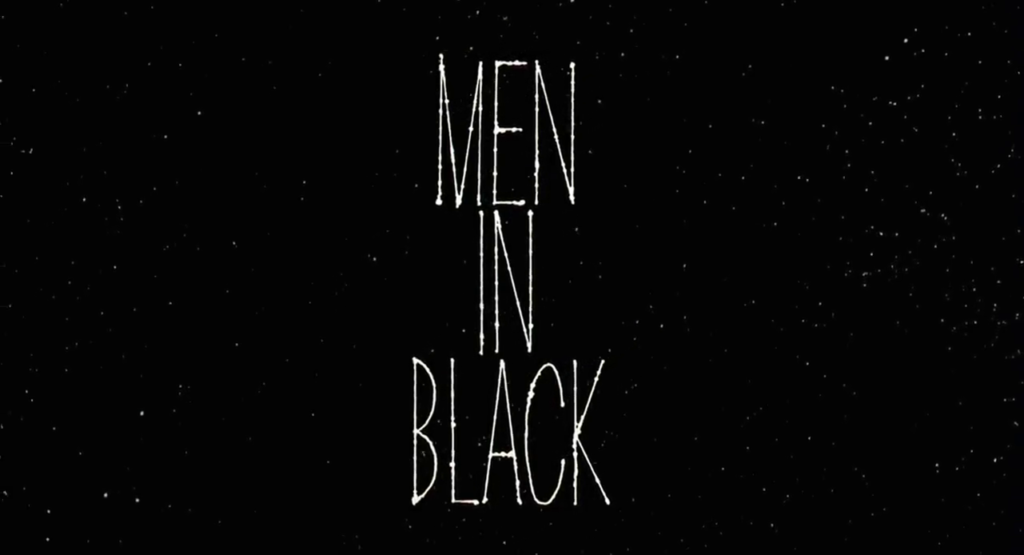
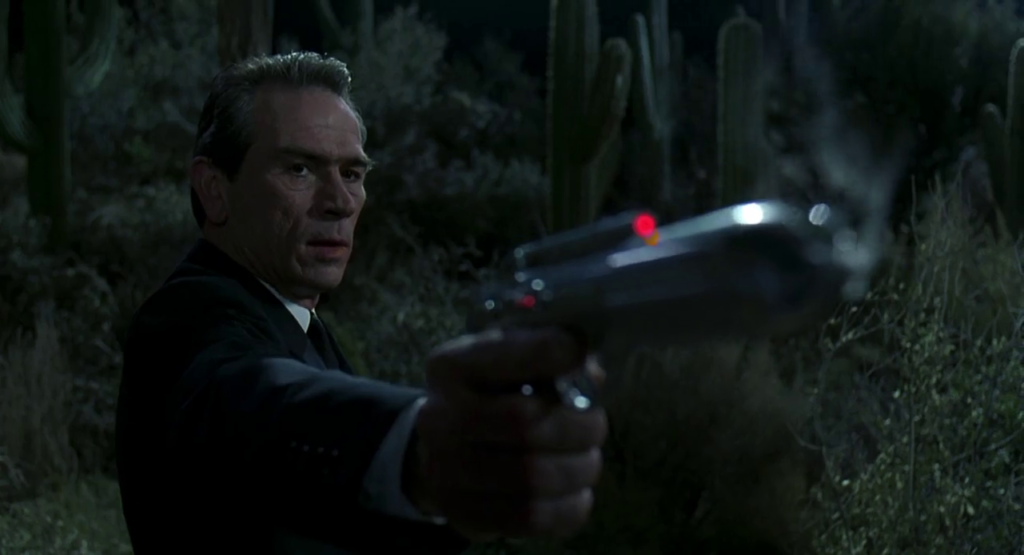
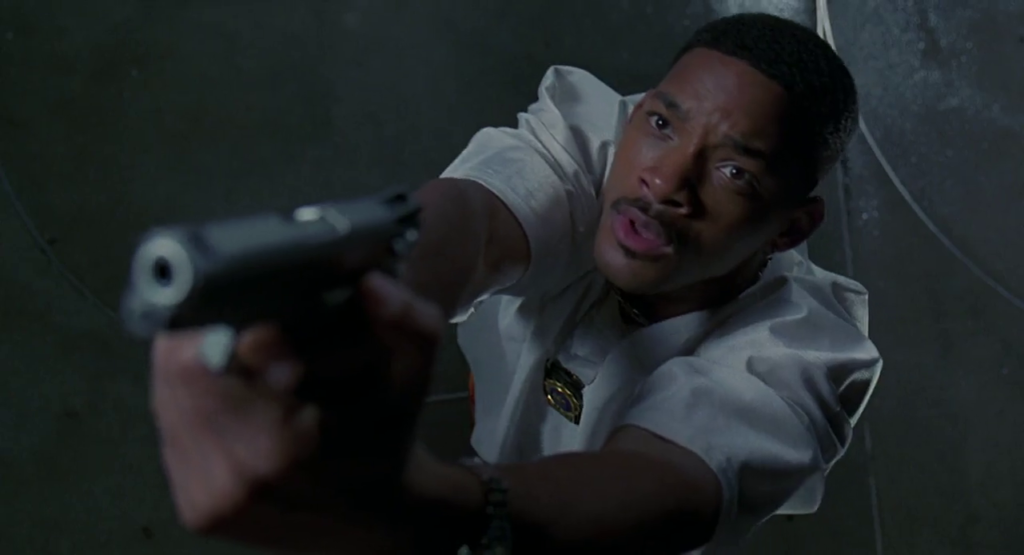
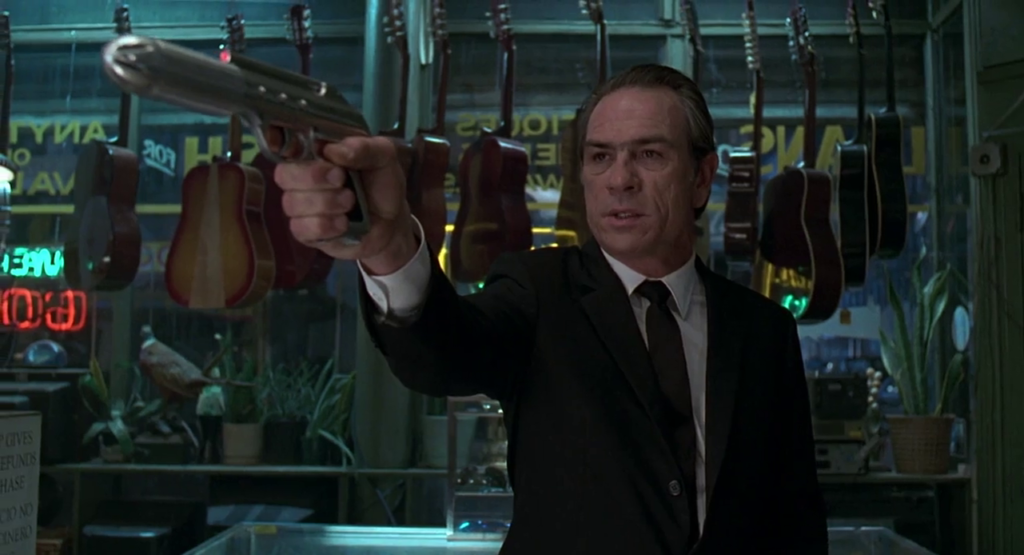
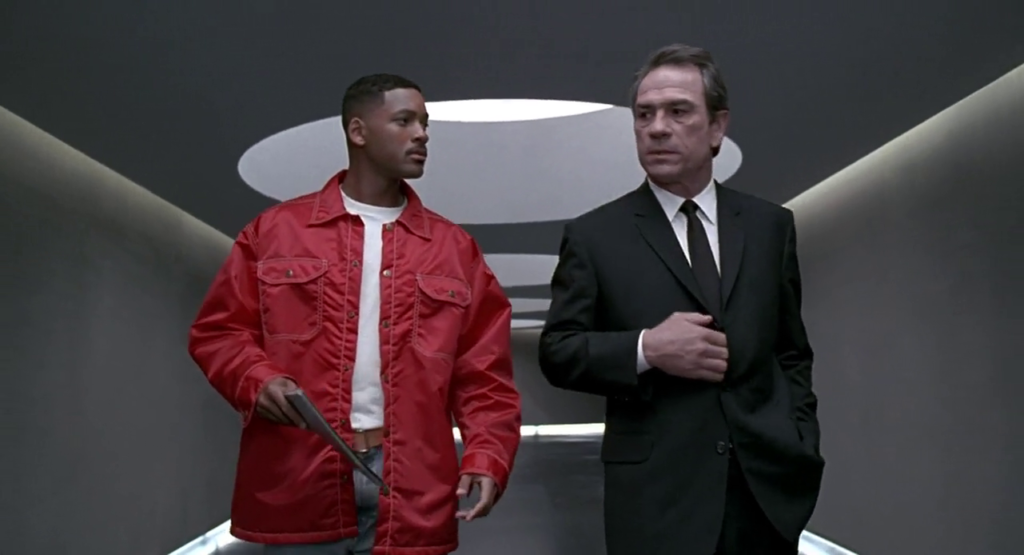
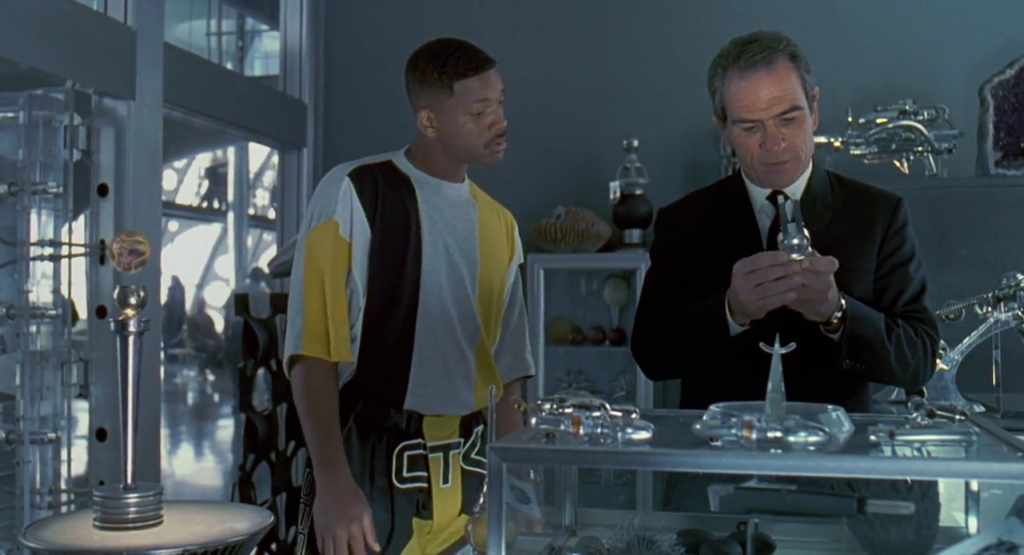
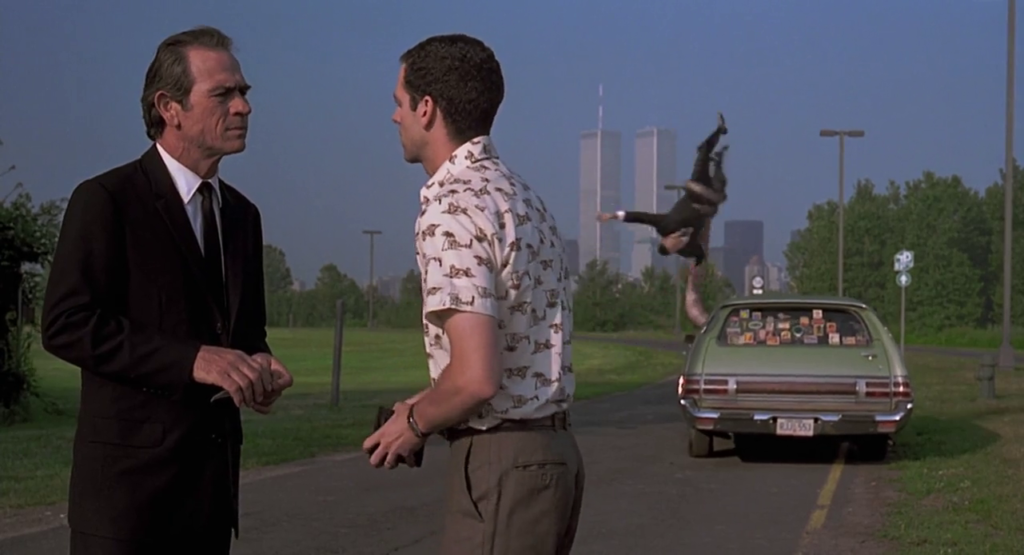
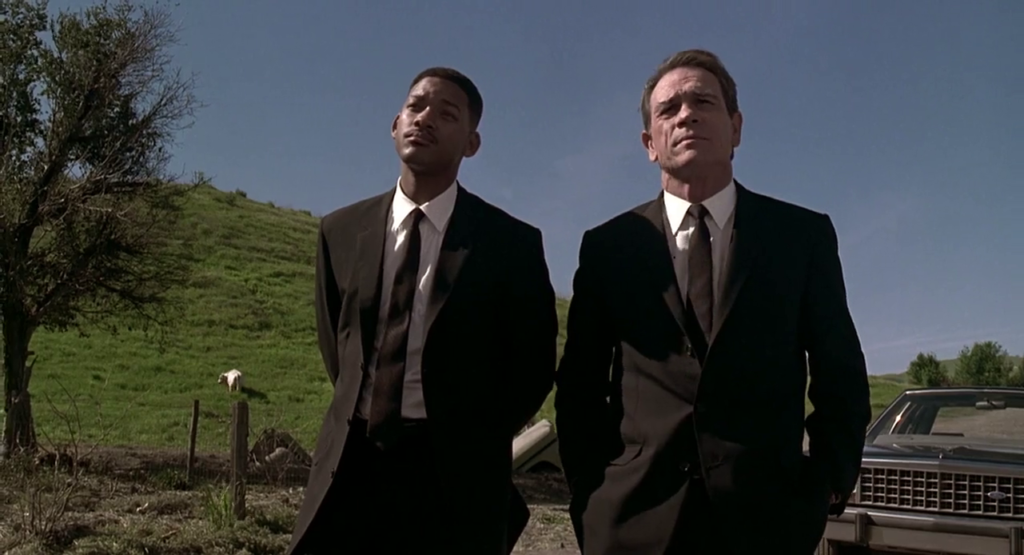
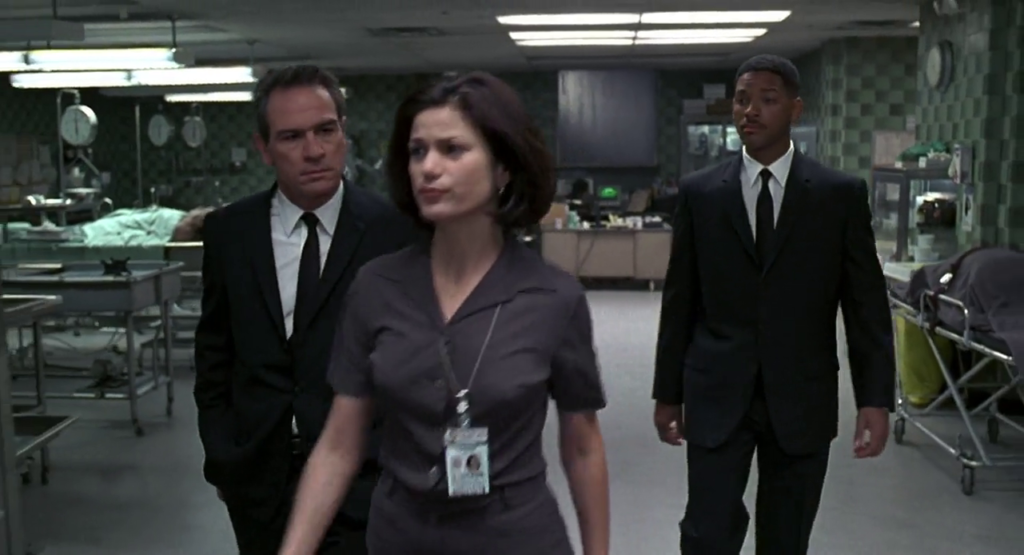
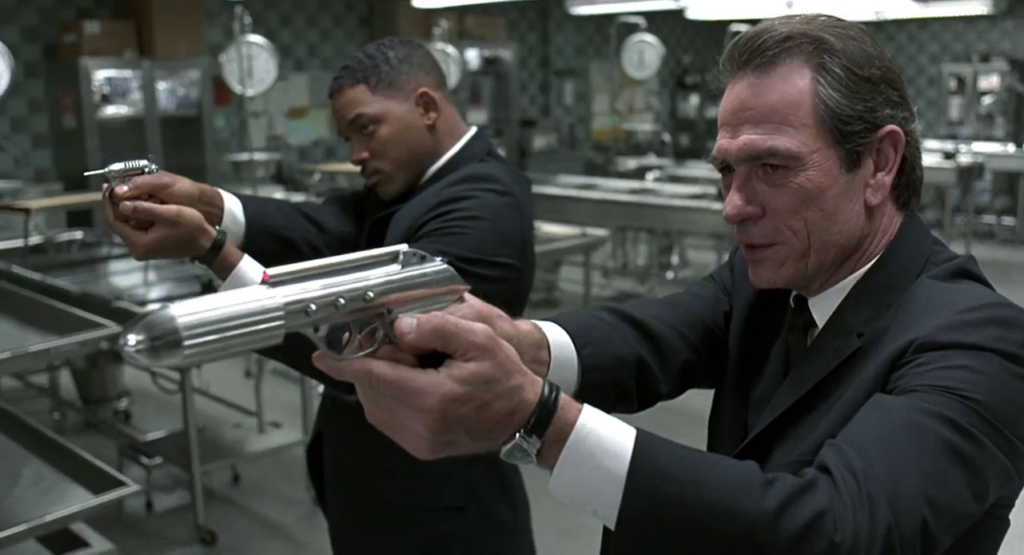
Men in Black (1997)
Film review #533
Director: Barry Sonnenfeld
SYNOPSIS: N.Y.P.D. detective James Edwards chases down a criminal that turns out to be an alien, but no one believes him, until a mysterious man dressed in black turns up, and ultimately wipes his memory. He does however, give him the chance to prove himself, and James becomes Agent J, the newest member of the Men in Black, a secret organisation that monitors and regulates alien activity on Earth. Meanwhile, an intergalactic threat that endangers the Earth emerges, and agents J and K must stop the alien menace and prevent the planet’s destruction.
THOUGHTS/ANALYSIS: Men in Black is a 1997 sci-fi film loosely based on the comic series of the same name. The film centres around a secret organisation (unsurprisingly) called the Men in Black: who monitor and regulate alien activity on Earth, while keeping their existence hidden from the public. NYPD detective James Edwards chases down a suspect which turns out to be an alien in disguise, but no one believes him. That is, until a man dressed in a black suit arrives and confirms his suspicion that aliens are real. The man wipes James’ memory, but gives him the opportunity to join the Men in Black. The best part of the film is definitely between agents J and K, as Will Smith and Tommy Lee Jones fit in to their roles perfectly, and their chemistry is very entertaining. It’s perhaps a bit cliché with J being the streetwise, wisecracking cop, and K being the dry-humoured, grizzled veteran, but they definitely make the roles their own, and together they just work so well. The supporting cast also fit their roles well, and have very specific roles to play. The other plotline other than Agent K training J is one that involves a bug-like alien attempting to find a miniature galaxy that doubles as an energy source, and a diplomatic incident that threatens to end in the earth’s destruction. It’s not as interesting a plot point than J and K’s development, and when the film moves towards the climax, the film does lose focus a bit. Nevertheless, it’s still an entertaining ride, and a comfortable runtime so that it doesn’t overstay it’s welcome.
The film makes considerable effort to create it’s world, and the sets, designs and effects all help build it up into something imaginative and fun. The Men in Black headquarters, and their weapons and gadgets are slick, the alien designs are varied and obviously have had a lot of effort put into them, and although the CG has obviously aged a bit since 1997, it still looks decent and doesn’t disrupt the enjoyment of the film. Add to this the recognisable soundtrack by Danny Elfman, and you have a very competent production all round. Apart from the film losing momentum near the end, Men in Black is a fun, entertaining film that gets the best out of it’s cast and those behind the scenes. It was also successful enough to launch a franchise, including sequels, an animated series, and video games. The film opens up plenty of possibilities to be explored, but never gets too heavy with the lore and exposition, and focuses on being an entertaining film that, while leans a lot on the buddy-cop trope and the rookie partnered with a veteran, it has enough of a twist on it, and amplified by the lead’s chemistry, it feels fresh enough. It still holds up as a good film with enough humour and action to make it worth a watch if you’ve never seen it before.
-
#532 – Lobster Man from Mars (1989)
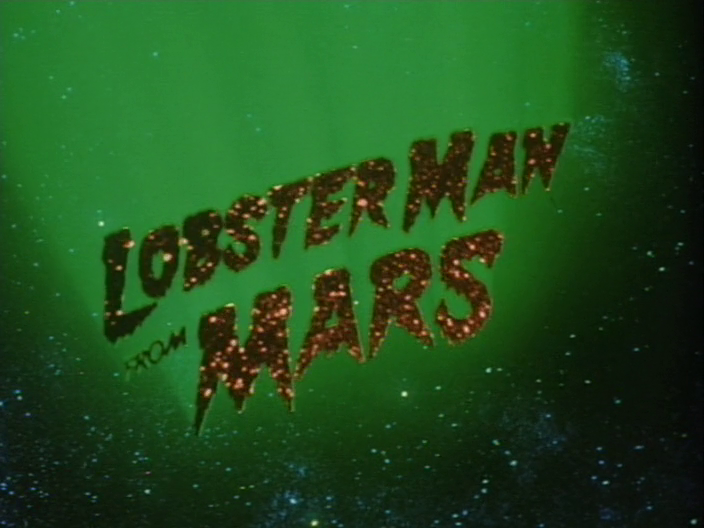
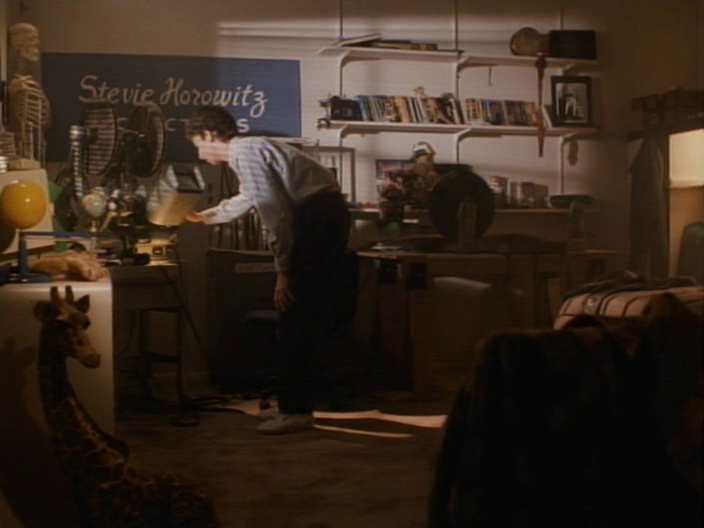
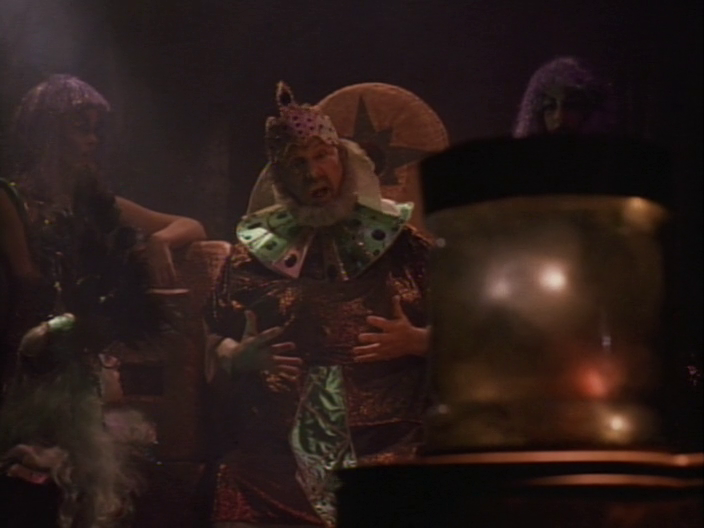
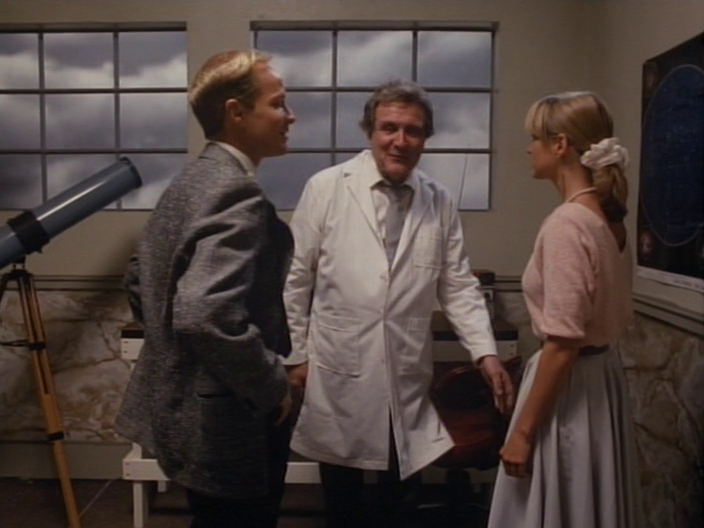
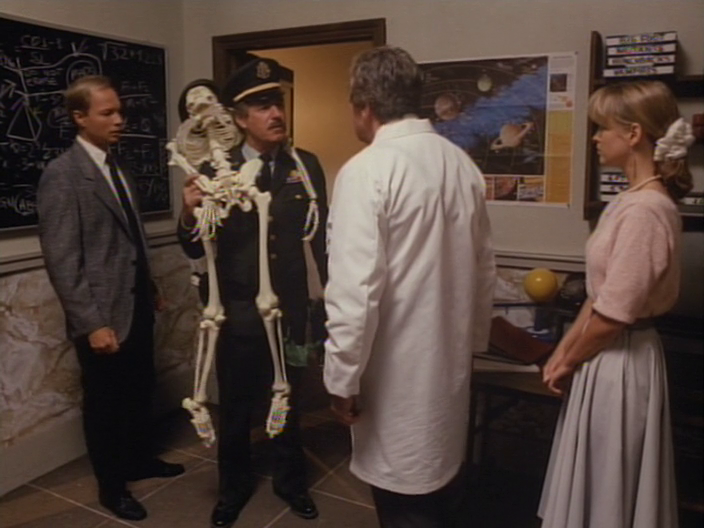
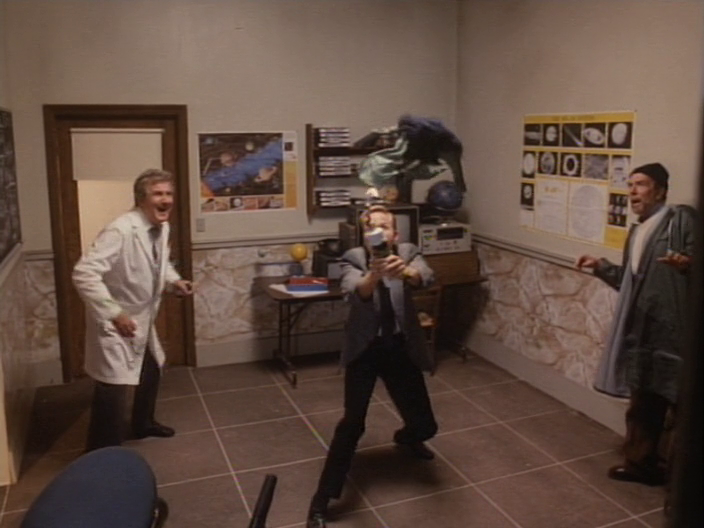
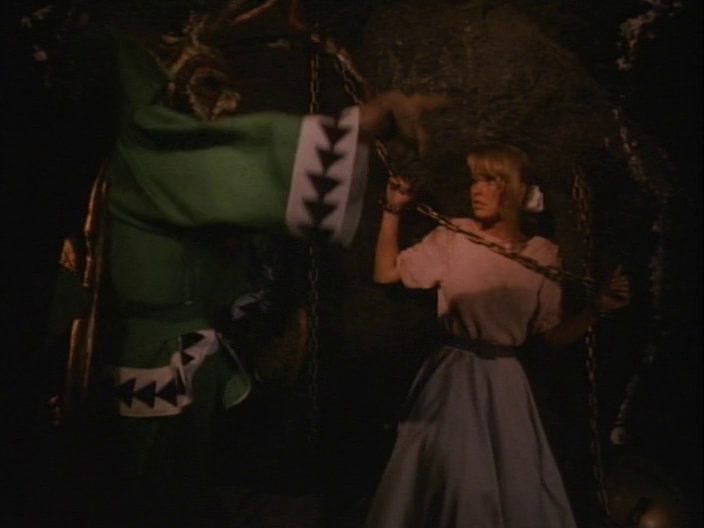
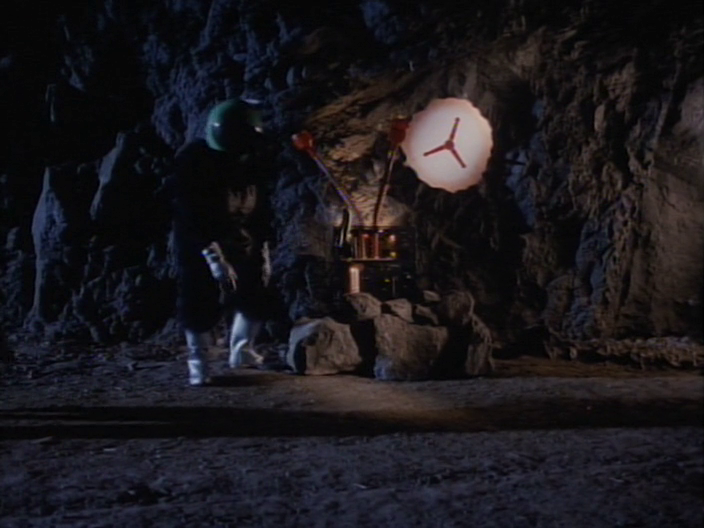
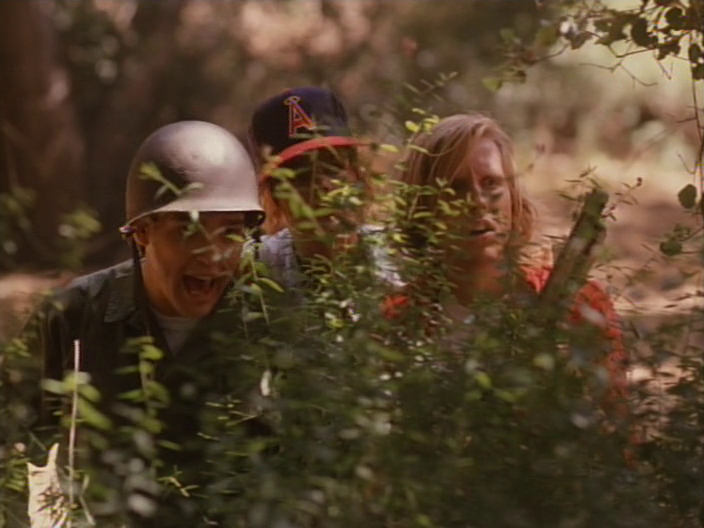
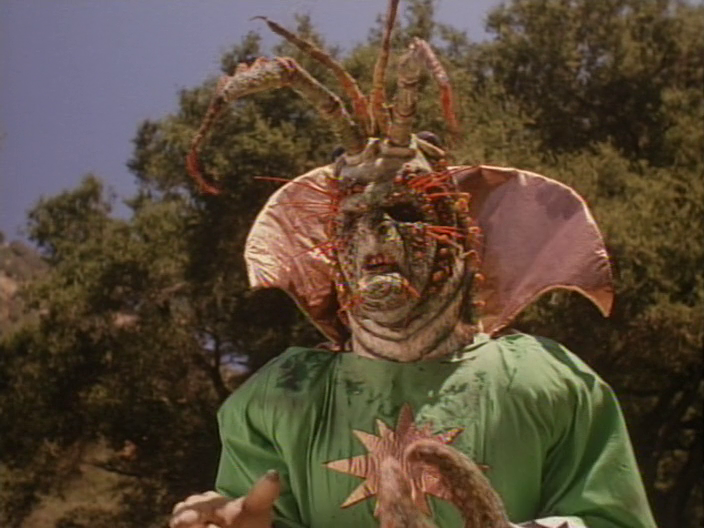
Lobster Man from Mars (1989)
Film review #532
Director: Stanley Sheff
SYNOPSIS: A movie studio executive is plagued by money problems, and requires a tax-write off to keep the IRS away. He decides to produce a film brought in by a young film writer that is utterly absurd: “Lobster Man from Mars…”
THOUGHTS/ANALYSIS: Lobster Man from Mars is a 1989 sci-fi film within a film. Opening up, we see Movie mogul J.P. Sheldrake, who is facing monetary pressure from the usual suspects: his ex-wife, the I.R.S., and so on. He decides he needs to release a movie that flops so badly he can make it a tax write-off and keep those he owes money to at bay. Fortunately, young movie writer/producer Stevie Horowitz walks in with the perfect potential film: Lobster Man from Mars, a film in the style of the old b-movie sci-fi films. The film (as a whole) becomes a film-within-a-film: The movie mogul sits in a theatre to watch the “Lobster Man from Mars” film, and we watch it as well, with a few occasional cutaways to Sheldrake to offer his thoughts. It’s an interesting setup, but was done prior in the 1968 film The Producers to much better effect. We’re also only taken out of the film a few times to see Sheldrake’s thoughts, meaning for the most part the “film in a film” element is irrelevant. With regards to the “Lobster Man from Mars” film itself, it follows a very typical b-movie sci-fi plot which it is aiming to parody: Mars is “leaking air” from it’s atmosphere, and so the ruler of Mars sends the dreaded lobster man and his assistant Mombo, who resembles a gorilla in a space helmet, to go to Earth and steal all it’s air…? Honestly, I’m not sure how they’re going to steal Earth’s air, and how it’s going to help if Mars is “leaking” any air it gets anyway, but regardless, when they arrive on Earth, the killing starts, and anyone who gets in their way gets turned into a pile of bones.
The film mostly plays it straight, with the film-in-a-film just being played without any commentary or over-the-top parody: it could easily pass for an actual b-movie. This is both a core strength and a weakness in the film: the best comedic moments come from the film playing it completely straight without any overt humourous moments, and it is the unexpected moments that provide the best comedy. The drawback to this is that it sometimes plays it too straight, and you forget you’re watching something that is supposed to be funny for fairly long stretches. The humour also feels fairly niche, in the sense that you would have to have actually watched these films originally to really get what it is parodying. Some of the really niche references, such as Colonel Ankrum being a reference to Morris Ankrum, who played similar characters in 1950′s films, is only going to be understood by a fraction of viewers. It definitely gets the b-movie feel right, but in 1989, there was plenty of other parodies of the genre that offered something new and entertaining from an entertainment perspective. This film just feels like it goes through the motions while reminding you it is a parody from time to time. There were a few of these b-movie parodies in the 80′s, but they typically went for a more upfront comedy and absurd premise, such as Killer Klowns from Outer Space. While a plot about Mars leaking air sounds quite silly, it definitely fits the b-movie mold, and would probably have fit right in. Although released in 1989, the film was actually written about ten years earlier, and it definitely feels that way. Lobster Man from Mars does something a little different, but it altogether feels a bit too niche and relies too much on in-jokes to appeal to a more general audience.
-
#531 – The Gingerweed Man (2021)
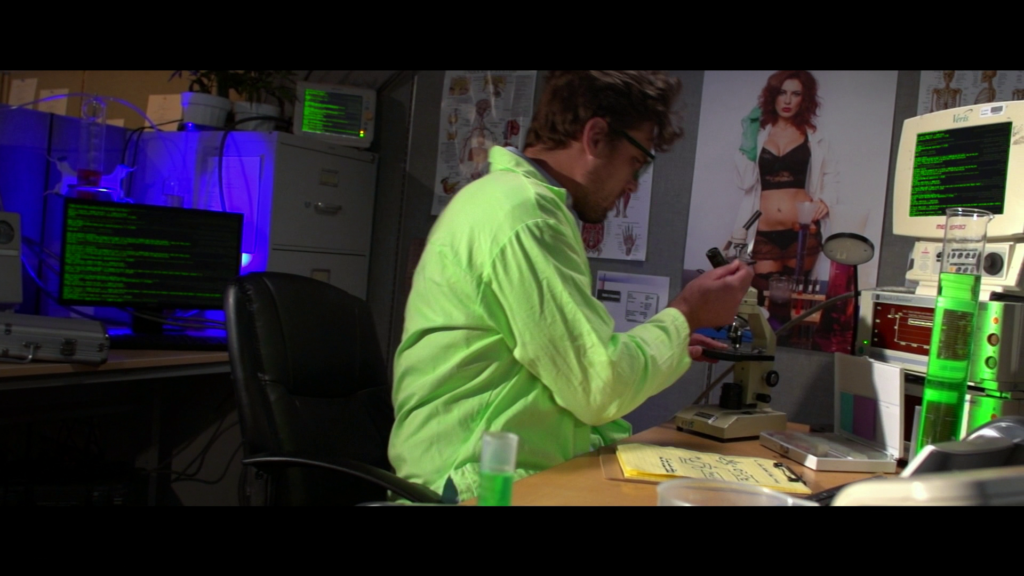
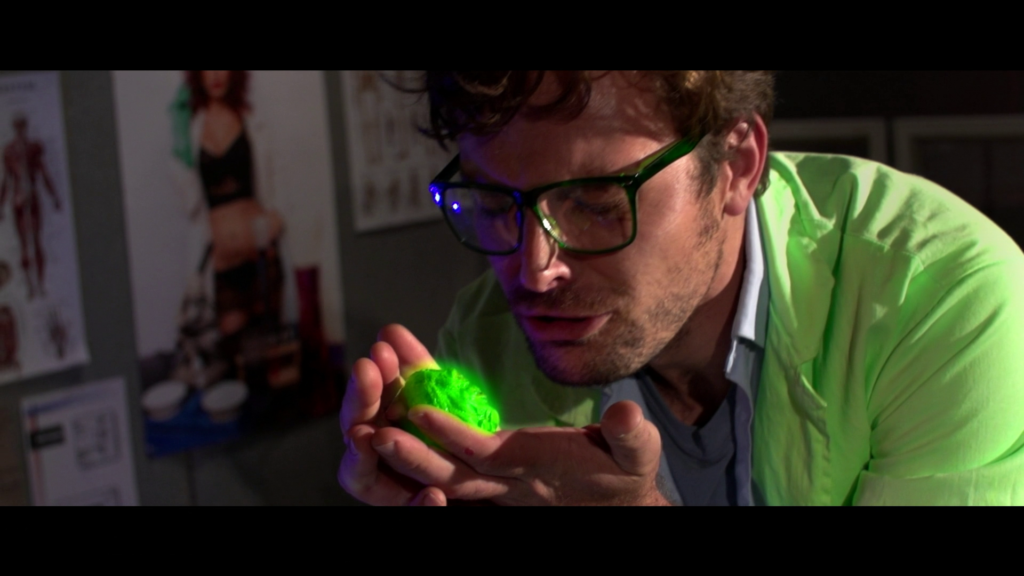
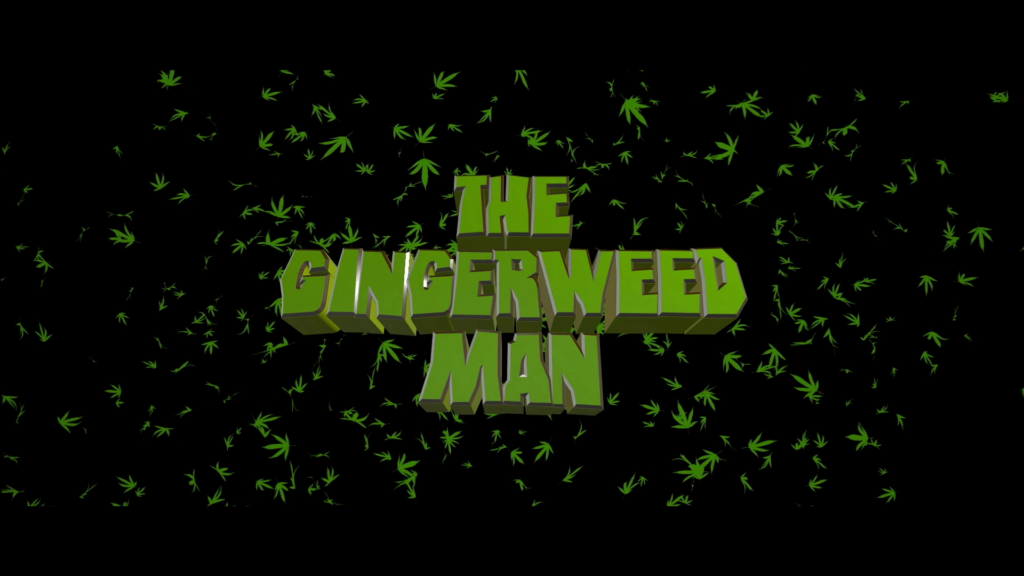
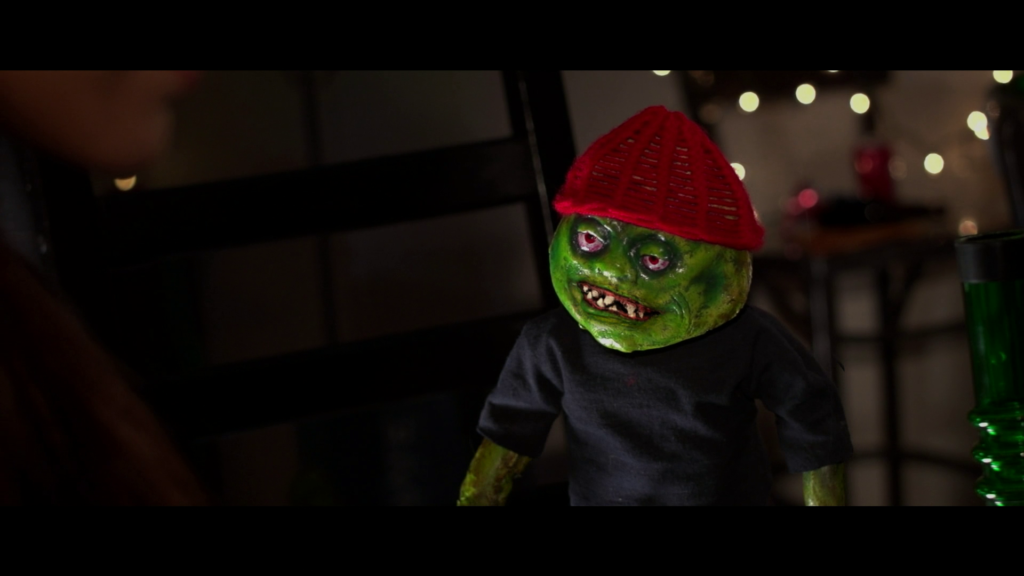
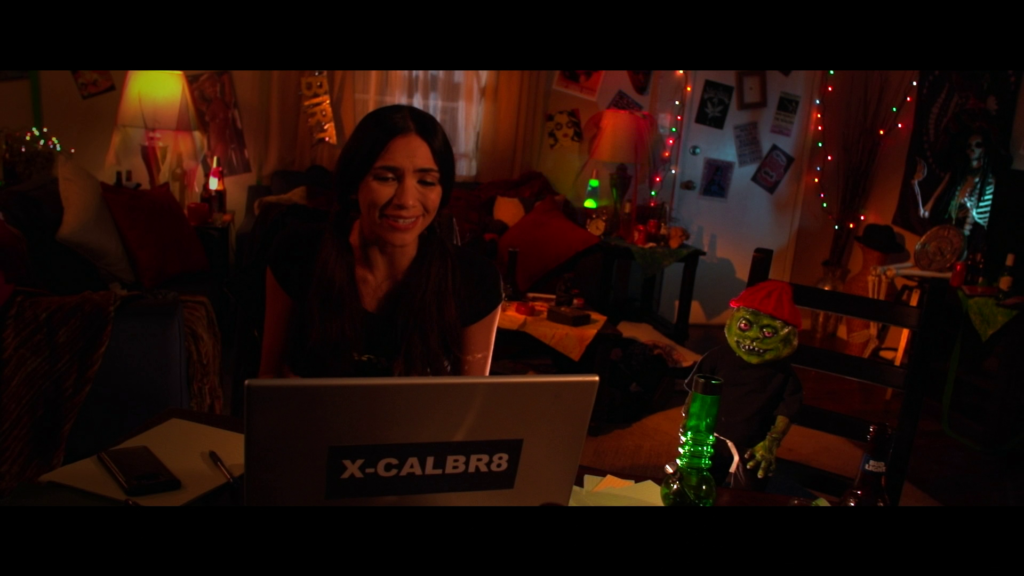
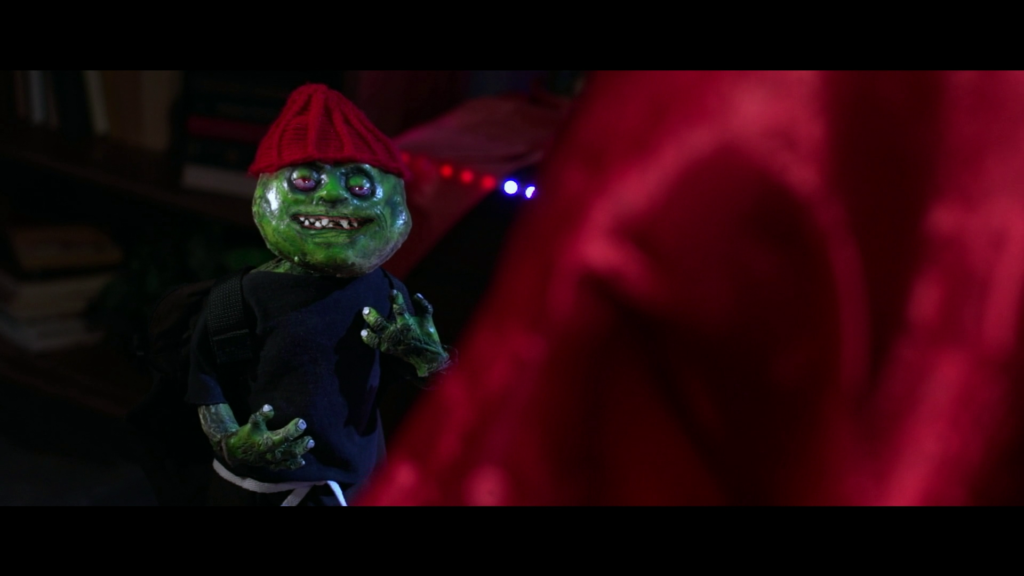
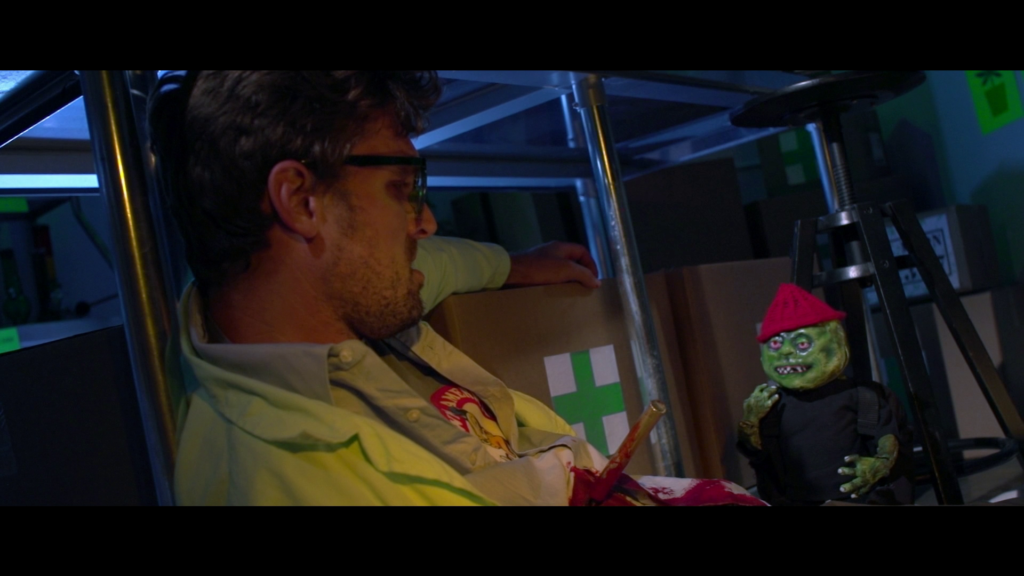
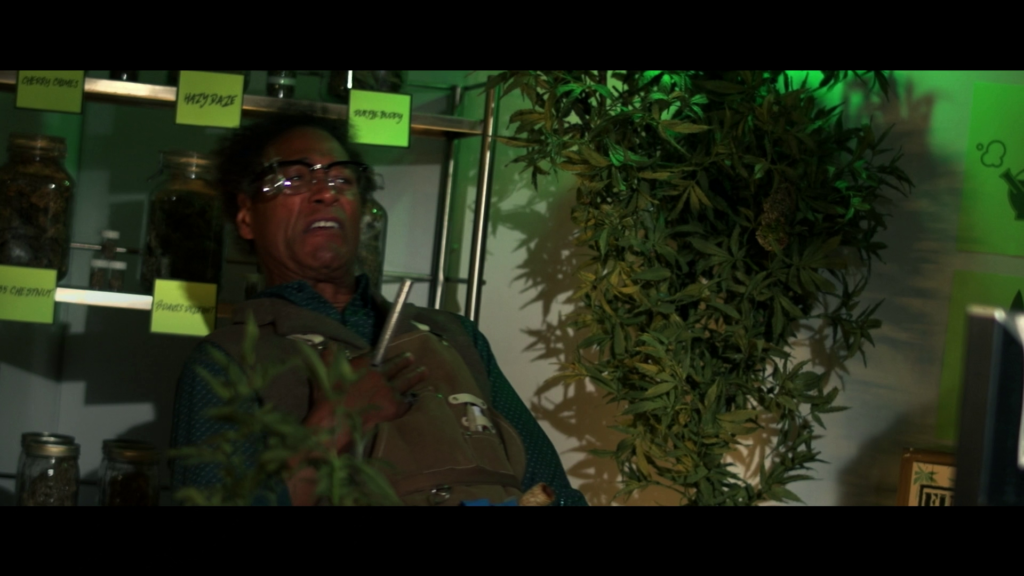
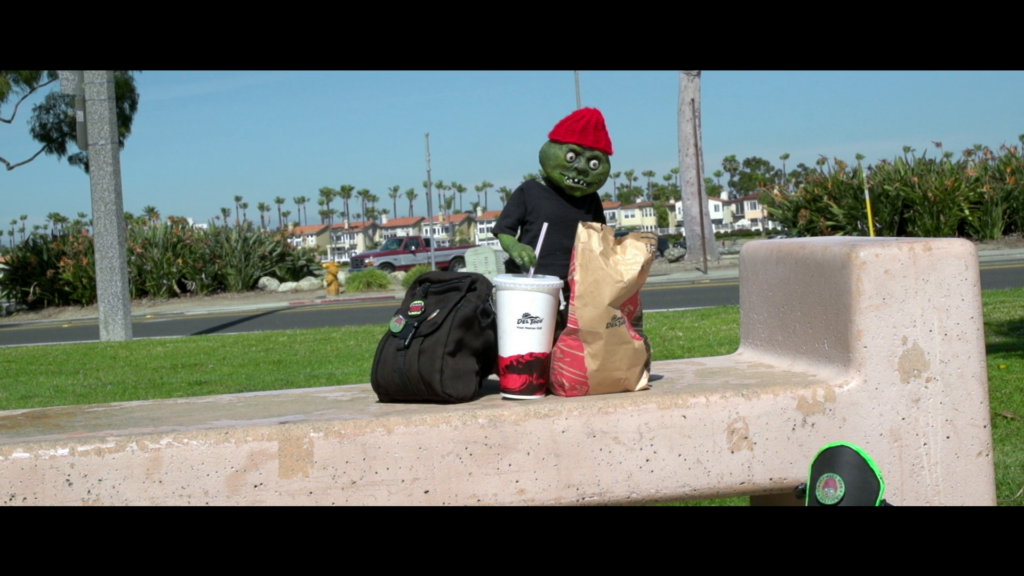
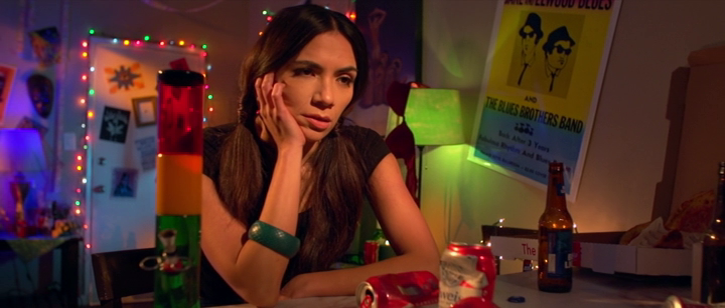
The Gingerweed Man (2021)
Film review #531
Director: Brooks Davis
SYNOPSIS: The Gingerweed man has started a weed delivery service in the city, catering to all sorts of clientele. When he stumbles upon a living, super strain of weed, he finds himself having to prevent it from falling into the wrong hands and being used for evil…
THOUGHTS/ANALYSIS: The Gingerweed Man is a 2021 film and a spin-off of the Evil Bong film franchise. From the opening, we see that the Gingerweed Man has set up a weed delivery service with his partner Barbara, and delivers weed to all the wacky people around town. Meanwhile, a scientist has managed to create a living, super strain of weed powerful enough to save or destroy the world. The evil “Smokeahontas” hunts down the scientist, who manages to hide the super weed and subsequently falls into the hands of the Gingerweed Man. The film’s story is fairly easy to follow, although offers nothing really of any substance. As with the Evil Bong films from which it spawned, the film is only going to be entertaining if you are as high as a kite; the humour is crude most of the time, and apart from that, just doesn’t give anything entertaining to the viewer. Luckily, at just over fifty minutes long (spread over two chapters), it’s fairly quick and harmless, and the short runtime means it doesn’t waste time with extended dialogue or pointless things.
One of the main problems with the film is that the main character, The Gingerweed Man, is not really interesting, and feels like a mish-mash of tropes: he dresses like a stoner, but talks like a posh Englishman with the accent to match. I’m just not sure how to situate the character, so it’s difficult to see where the comedy comes from. Smoke-ahontas as the villain doesn’t seem to really do anything other than to chase other characters, and “Buddy” as the super weed strain…thing is just an annoying high-pitched mascot thing which you will grow tired of quickly.
The Gingerweed Man could have been a chance to try something new after all the Evil Bong movies which are essentially all the same. Of course, being made by Full Moon Entertainment, it was never going to push things in an innovative or original way, but it is at least a bit different (in that it actually has some sort of plot). The film is shot decently, and there’s more than two different sets, so that’s a win. Overall though, I think it’s safe to say that The Gingerweed Man isn’t really anything worthwhile, unless you’re so high you’re detached from reality.
